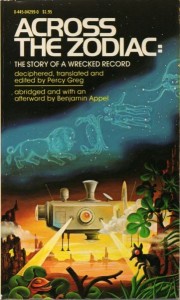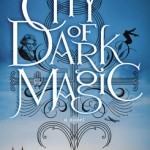The discovery of Mars in literature
 David Seed, author of Science Fiction: A Very Short Introduction, explains why the red planet has inspired so much speculative fiction.
David Seed, author of Science Fiction: A Very Short Introduction, explains why the red planet has inspired so much speculative fiction.
Reasons to Re-Joyce
Is literary fiction really a dying breed? In The New York Times Darin Strauss argues that it is not:
So things might look pretty bad. But to me, the scurrilousness has the pasty complexion of po-faced error. The worry, the criticism, feels tacky and fatuous. Just this season I happened to read, back to back to back, new and oddly similar masterpieces. And I mean, legitimate masterpieces. I think the naysaying misses not only the fact that this has been a wildly good book year but also the emergence of a new trend. It’s less a school or a movement than a clutch of writers who share a really unlikely pedigree: “Ulysses.”
Read why he sees this new trend emerging in these novels: NW by Zadie Smith, Billy Lynn’s Long Halftime Walk by Ben Fountain, and Telegraph Avenue by Michael Chabon.
Why Women Writers Still Take Men’s Names

Ever since the Brontë sisters chose to publish their works under the name the Bell brothers in the nineteenth century, women authors have been adopting men’s—or at least gender-neutral—pen names.
Read about why Christina Lynch and Meg Howrey chose to use the name Magnus Flyte on their recently published fantasy novel City of Dark Magic.
Rick Riordan: ‘Myths are universal and are totally ingrained in our culture’
Rick Riordan has popularized mythic heroes in his Percy Jackson series, the Kane Chronicles, and the Heroes of Olympus series. In this interview the former high school classics teacher explains that he uses ancient myths but updates them by imagining how the story would work itself out in the modern world: “These myths are universal and are totally ingrained in our culture. We are still struggling with the same things, so they fit neatly into the modern world.”
21 Novels You Need to Read
AARP, the organization for people over age 50, asked novelist Jacqueline Mithchard to list a dozen novels that people should read by the time they’re 50. She replied that she couldn’t restrict her list to 12, since “stories are what help us best understand why we are how we are.”
Instead of a dozen, she here recomments 21: “after consulting people I admire and my own mental file, I included only novels that I believe you really ought to read.”
I was glad to see that my own favorite, To Kill a Mockingbird, tops Mitchard’s list. Read why she recommends it, along with these others:
- To Kill a Mockingbird by Harper Lee
- True Grit by Charles Portis
- A Tree Grows in Brooklyn by Betty Smith
- Andersonville by MacKinlay Kantor
- The Maltese Falcon by Dashiell Hammet
- Lonesome Dove by Larry McMurtry
- Rebecca by Daphne du Maurier
- The Restaurant at the End of the Universe by Douglas Adams
- The Alchemist by Paulo Coelho
- Jane Eyre by Charlotte Brontë
- Gone with the Wind by Margaret Mitchell
- The Magus by John Fowles
- In Our Time by Ernest Hemingway
- Different Seasons by Stephen King
- The Haunting of Hill House by Shirley Jackson
- Anna Karenina by Leo Tolstoy
- Red Dragon by Thomas Harris
- The Killer Angels by Michael Shaara
- Crossing to Safety by Wallace Stegner
- The Great Gatsby by F. Scott Fitzgerald
- Charlotte’s Web by E. B. White
I’ve only read 13. How about you?
